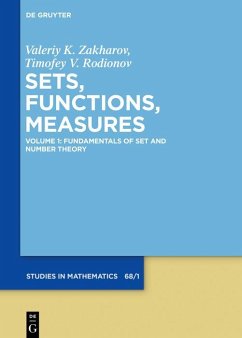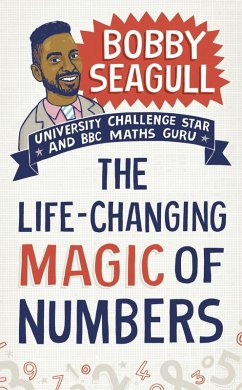
The Number Concept: Its Origin and Development (eBook, ePUB)
Sofort per Download lieferbar
1,99 €
inkl. MwSt.

PAYBACK Punkte
0 °P sammeln!
In "The Number Concept: Its Origin and Development," Levi L. Conant delves into the intricate evolution of numerical systems, tracing the philosophical and historical roots of humanity's understanding of numbers. This meticulously researched work weaves together elements of mathematics, linguistics, and anthropology, creating a tapestry that illustrates how different cultures have conceptualized numbers over time. Conant employs a scholarly yet accessible style, making complex ideas understandable while inviting readers to appreciate the profound implications of numerical concepts on human tho...
In "The Number Concept: Its Origin and Development," Levi L. Conant delves into the intricate evolution of numerical systems, tracing the philosophical and historical roots of humanity's understanding of numbers. This meticulously researched work weaves together elements of mathematics, linguistics, and anthropology, creating a tapestry that illustrates how different cultures have conceptualized numbers over time. Conant employs a scholarly yet accessible style, making complex ideas understandable while inviting readers to appreciate the profound implications of numerical concepts on human thought and civilization. Levi L. Conant, a distinguished mathematician and educator, brings a wealth of knowledge and expertise to this exploration. His academic background and keen interest in the origins of mathematical thinking likely stem from his experiences as an educator and his deep appreciation for diverse cultural perspectives. Conant's ability to synthesize vast amounts of information demonstrates his commitment to bridging historical and modern interpretations of numerical significance, which serves as the backbone of this profound study. This book is highly recommended for scholars and enthusiasts alike, offering a compelling look at the foundations of numerical understanding. Readers will gain not only historical insights but also a deeper appreciation of how numbers shape our perception of reality, making this work an invaluable addition to the libraries of mathematicians, historians, and educators.
Dieser Download kann aus rechtlichen Gründen nur mit Rechnungsadresse in A, B, BG, CY, CZ, D, DK, EW, E, FIN, F, GR, H, IRL, I, LT, L, LR, M, NL, PL, P, R, S, SLO, SK ausgeliefert werden.













